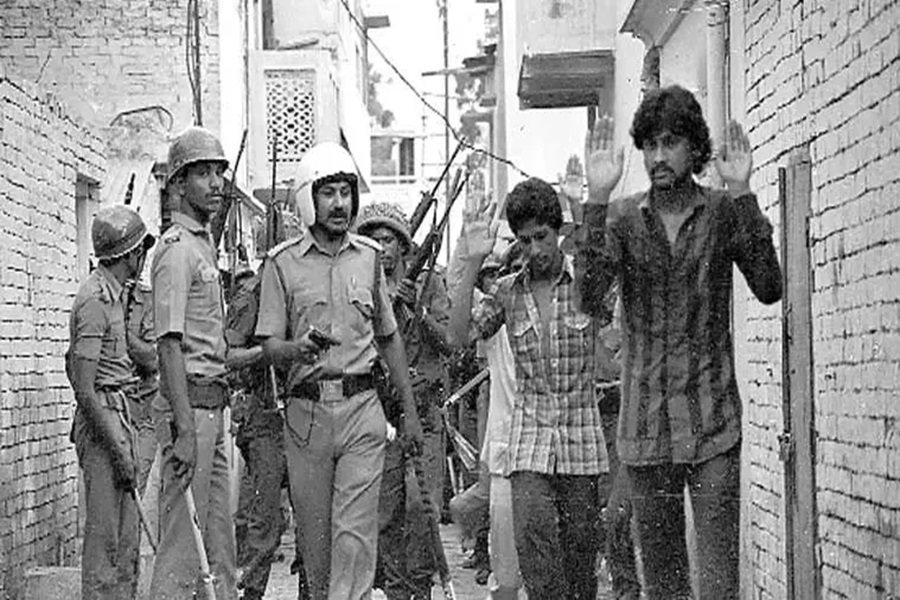On May 22, 1987, PAC personnel rounded up approximately 50 Muslim men from Hashimpura, Meerut, fatally shot them and dumped their bodies in a canal
Team Clarion
NEW DELHI – Citing an earlier decision of granting bail to eight convicts involved in the 1987 Hashimpura massacre case, the Supreme Court on Friday granted bail to two more convicts. The convicts, all Provincial Armed Constabulary (PAC) personnel in Uttar Pradesh, were found guilty of killing 38 Muslim men.
A division bench of Justices Abhay S Oka and Augustine George Masih considered the bail plea filed by senior advocates Amit Anand Tiwari and Shadan Farasat, representing convicts Budhi Singh and Basant Ballabh. Both lawyers sought bail on the grounds of parity, noting their clients had been in jail for over six years, similar to other convicts in the case, media reports said on Saturday.
Tiwari argued that the appellants had been in prison for over six years since the high court’s verdict, with exemplary conduct throughout the trial and appeal process. He further contended that the high court’s reversal of the trial court’s acquittals was based on erroneous grounds.
The Hashimpura massacre occurred on May 22, 1987, when PAC personnel rounded up approximately 50 Muslim men from Hashimpura, Meerut, under the pretext of taking them to a safer place amid communal violence. They were then taken to the outskirts of the city, fatally shot, and their bodies dumped in a canal. Only five survivors remained to recount the horrific incident.
Initially, a trial court in 2015 acquitted 16 PAC personnel, citing insufficient evidence. However, in 2018, the Delhi High Court reversed the acquittals and convicted the accused under charges of murder, kidnapping, and causing the disappearance of evidence. The convicts were sentenced to life imprisonment.
The case saw multiple challenges, with appeals pending in the Supreme Court. Among the 19 personnel charged, three, including platoon commander Surender Pal Singh, died during the trial. The chargesheet included 66 PAC personnel, though many remain unnamed in the case’s proceedings.

